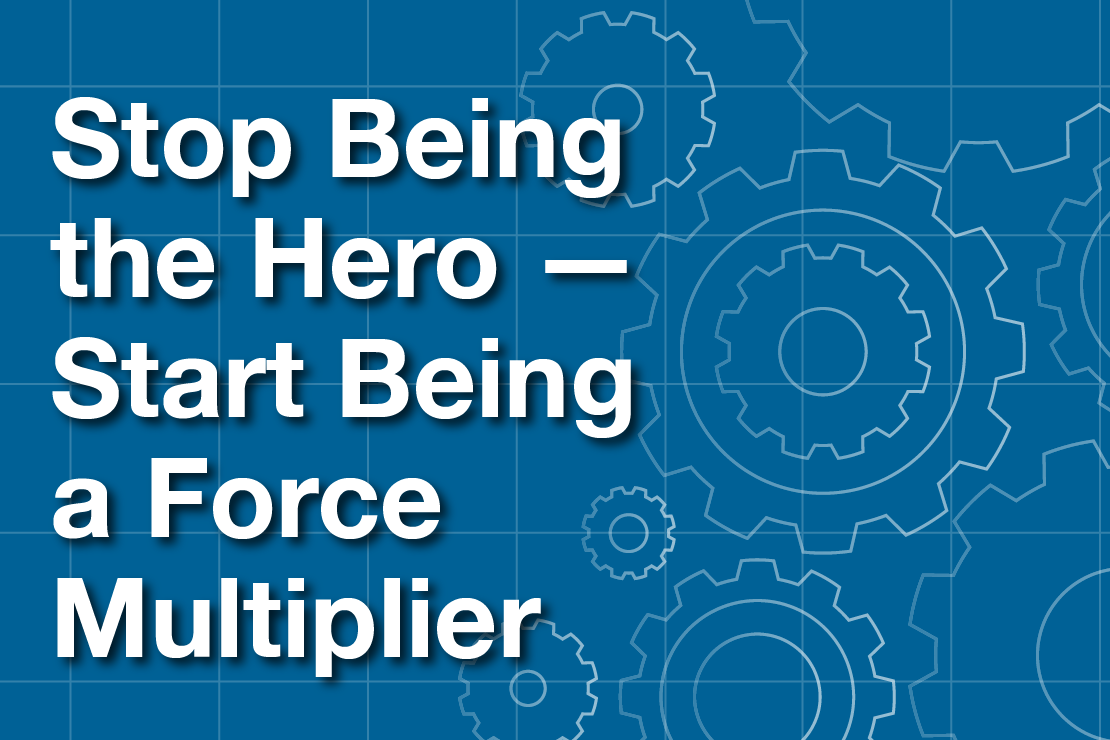Stop Being the Hero — Start Being A Force Multiplier
Feb 24, 2025

A note from Katie Smith:
As Head of the Startup Community team at Techstars, I have been blessed to cross paths and learn from many of the great thought leaders of Startup Community building and Chris Heivly is an absolute powerhouse in this sphere. He is a successful entrepreneur, investor, author, and former Techstars SVP of Innovation and now he is dedicating his efforts to helping Startup Communities thrive.
As Techstars embarks on a journey to further how we support founders in their communities with our Startup Community Partnerships, Chris will return to Techstars as an Entrepreneur in Residence for Startup Communities and a contributor to our blog!
In Chris’s book, "Build the Fort: The Startup Community Builder's Field Guide," he offers insight to founders, investors and economic development leaders to better accelerate their ecosystem. For his blog contributions, you can expect a continuation of learnings and insights on thought-provoking topics such as mentorship, storytelling, networking, collaboration, and so much more.
We are so lucky to have Chris join us in such an important chapter for Techstars and we are delighted to share his wisdom with all of you!
Without further ado, please enjoy Chris’s first contribution!
By Chris Heivly, Managing Director at Build The Fort and Startup Community EIR @ Techstars
In every startup community, there’s a small group of people who make things happen. You know them. They show up. They host events. They connect founders to investors, mentors, and each other. They are the force that keeps everything moving.
But here’s the thing — being a force will only get you so far. If you want to take your startup community to the next level, you need to evolve from being the force to becoming a force multiplier.
At the start, leadership is about doing the work. You organize the pitch night. You send the invites. You introduce founders to investors. You run the incubator, the accelerator, the meetups. You’re in the trenches, and you’re damn good at it.
This is essential. Without doers, it's all talk and nothing happens.
But if you stay in this phase too long — if you keep grinding out the same tasks yourself — you’re setting a ceiling on growth. The community (or company) can only scale as far as your bandwidth allows.
And that’s when you start to burn out.
True startup community leadership kicks in when you stop being the only force and start enabling other forces. This is the shift from doing to amplifying.
In practical terms, this means:
Instead of running the pitch night, you find and empower someone else to do it.
Instead of making every introduction yourself, you teach others how to network effectively.
Instead of personally advising every founder, you create a culture of mentorship where successful entrepreneurs give back.
Instead of accepting every stage opportunity you invite others to take that spot.
Instead of running the event/activity/organization for life, you recruit and develop new leaders.
This is the moment when your impact stops being linear and starts being exponential.
The startup world is full of people who think they’re leading but are really just maxing out their own time. They mistake busyness for effectiveness. They mistake being involved for creating impact.
But the best leaders — the ones who build truly great companies and communities — know that their job isn’t to do everything. It’s to make sure the right things get done, whether or not they’re the ones doing them.
The shift from being a force to being a force multiplier is the difference between a community that grows incrementally and one that accelerates like a rocket.
So here’s the challenge: What are you still holding onto? Where can you create more forces instead of being the only one pushing things forward?
Let go. Step up. Multiply.
Learn more about Techstars Startup Community™ partnerships, a new way for you to build your thriving startup community as a member of the Techstars network.
About the Author

Chris Heivly
Chris is one of the nation’s leading experts on launching startups and has been dubbed the “Startup Whisperer.” He co-founded MapQuest, is an angel investor, ran a corporate venture fund and 2 micro venture funds (directed over $75M), and was most recently SVP Innovation with Techstars. Chris just released his new book, The Startup Community Builder’s Field Guide for founders, investors and economic development leaders to better accelerate their ecosystem.
